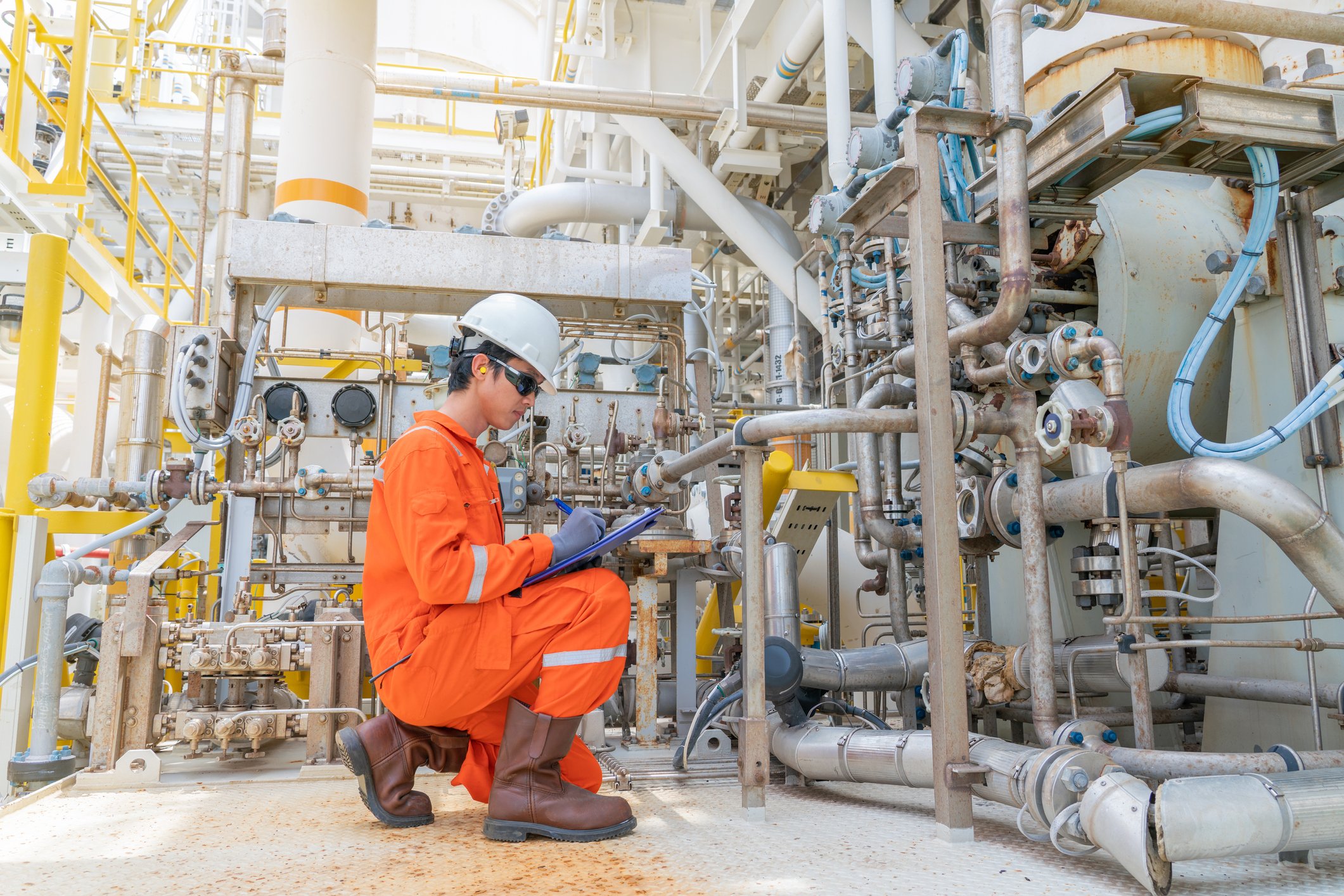Mechanical engineers are innovative problem solvers with strong reasoning skills. Mechanical engineers have invaluable mechanical knowledge and experience that make their profession critical to ensuring mechanical systems and devices, such as engines, machines, robots, and other mechanical tools, always remain operational.
In this career, mechanical engineers apply their creativity and technical skills in mechanics to troubleshoot a range of mechanical problems. They also help keep machines and systems running, run tests, evaluate their results and, design and develop new mechanical products. Mechanical engineers often work in the office, but sometimes must visit the sites where machines, systems or devices are operating to assess or fix them. It is also common for mechanical engineering technicians to help mechanical engineers to design, create, evaluate, and produce machines and mechanical devices.
Given the importance of having smooth-running mechanics in many industries, mechanical engineers can find jobs in a wide range of industries. Sectors include manufacturing, architectural engineering, and infrastructure design, automotive, transportation, aerospace, energy, computer, and electronic manufacturing including robotics, and more.
In the architectural engineering sector, mechanical engineers may be responsible for designing and building bridges. While in the aerospace industry, mechanical engineers may be involved in designing and building airplanes, helicopters, satellites, and other incredible machinery. There is no shortage of exciting possibilities for a skilled and self-motivated mechanical engineer!
If a mechanical engineer also possesses electrical engineering knowledge and experience, this role is often referred to as an electromechanical engineer. In this role, engineers apply their blended mechanical and electrical expertise to assess, resolve and prevent issues in electromechanical machine systems and components, or to design and build such machines and devices. The sectors in which electromechanical engineers can work are very similar to those of the mechanical engineer.
Apply now for a job in the field of mechanical engineering!
Senior Mechanical Engineer
Location: Antwerpen
Branche: Machine & Plant Design
Expertise: Production & Manufacturing
Experience: 4 years
In deze rol sta je in voor: Het ontwerpen en uitwerken van installaties en piping-systemen (van concept tot detailengineering). Het voeren van technische besprekingen met leveranciers, inclusief opmaak van specificaties, prijsaanvragen en opvolging van bestellingen. Het inschatten van kosten, opstellen van planningen en opvolging tijdens de uitvoering. De coördinatie van werken en activiteiten op de site, inclusief opleverpunten en nazorg. Ondersteuning bij de opstart van nieuwe installaties en borging van scope, budget en timing.
Mechanical Engineer
Location: Leiden
Branche: Renewable Energy
Expertise: Research & Development
Experience: 2 years
Je maakt deel uit van een multidisciplinair team van structural engineers, naval architects en draftsmen. Samen werk je aan het volledige engineeringsproces - van conceptontwikkeling tot en met de uitvoering op zee. Wat je gaat doen Je analyseert en vertaalt projectdata naar werkbare installatiemethodes; Je maakt ontwerpberekeningen en stelt ontwerpdocumentatie op; Je ontwikkelt procedures voor o.a. load-outs, tow-operaties en installaties; Je ontwerpt hijsgereedschap zoals spreader bars en pad eyes; Je voert inspecties uit op fabriekslocaties en test het materieel voor gebruik offshore; Je denkt mee in het ontwerp van innovatieve oplossingen die bijdragen aan de energietransitie.
Mechanical engineer
Location: Den Haag
Branche: Renewable Energy
Expertise: Production & Manufacturing
Experience: 3 years
Je bent verantwoordelijk voor het volledige ontwerpproces: van het analyseren van eisen tot het valideren van technische oplossingen. Je coördineert het ontwerpwerk binnen het projectteam, voert risicobeoordelingen uit en verzorgt afstemming met externe partijen. Je werkt nauw samen met projectleiders, werkvoorbereiders en uitvoerders. Je houdt je onder andere bezig met: Ontwerpen en berekenen van kabel- en leidinginfrastructuur op basis van klanteisen. Coördineren van schouwen en bureaustudies voor tracébepaling. Controleren en afstemmen van ontwerpen met interne en externe stakeholders. Opstellen van technische rapportages, verificatie en validatie van het ontwerp. Verzorgen van vergunningsaanvragen en omgevingsafstemming.
Mechanical engineer
Location: Leiden
Branche: Renewable Energy
Expertise: Production & Manufacturing
Experience: 3 years
Je bent verantwoordelijk voor het volledige ontwerpproces: van het analyseren van eisen tot het valideren van technische oplossingen. Je coördineert het ontwerpwerk binnen het projectteam, voert risicobeoordelingen uit en verzorgt afstemming met externe partijen. Je werkt nauw samen met projectleiders, werkvoorbereiders en uitvoerders. Je houdt je onder andere bezig met: Ontwerpen en berekenen van kabel- en leidinginfrastructuur op basis van klanteisen. Coördineren van schouwen en bureaustudies voor tracébepaling. Controleren en afstemmen van ontwerpen met interne en externe stakeholders. Opstellen van technische rapportages, verificatie en validatie van het ontwerp. Verzorgen van vergunningsaanvragen en omgevingsafstemming.
Mechanical Engineer
Location: Schiedam
Branche: Renewable Energy
Expertise: Research & Development
Experience: 2 years
Je maakt deel uit van een multidisciplinair team van structural engineers, naval architects en draftsmen. Samen werk je aan het volledige engineeringsproces - van conceptontwikkeling tot en met de uitvoering op zee. Wat je gaat doen Je analyseert en vertaalt projectdata naar werkbare installatiemethodes; Je maakt ontwerpberekeningen en stelt ontwerpdocumentatie op; Je ontwikkelt procedures voor o.a. load-outs, tow-operaties en installaties; Je ontwerpt hijsgereedschap zoals spreader bars en pad eyes; Je voert inspecties uit op fabriekslocaties en test het materieel voor gebruik offshore; Je denkt mee in het ontwerp van innovatieve oplossingen die bijdragen aan de energietransitie.
Mechanical Engineer
Location: Papendrecht
Branche: Renewable Energy
Expertise: Research & Development
Experience: 2 years
Je maakt deel uit van een multidisciplinair team van structural engineers, naval architects en draftsmen. Samen werk je aan het volledige engineeringsproces - van conceptontwikkeling tot en met de uitvoering op zee. Wat je gaat doen Je analyseert en vertaalt projectdata naar werkbare installatiemethodes; Je maakt ontwerpberekeningen en stelt ontwerpdocumentatie op; Je ontwikkelt procedures voor o.a. load-outs, tow-operaties en installaties; Je ontwerpt hijsgereedschap zoals spreader bars en pad eyes; Je voert inspecties uit op fabriekslocaties en test het materieel voor gebruik offshore; Je denkt mee in het ontwerp van innovatieve oplossingen die bijdragen aan de energietransitie.
Mechanical engineer
Location: Den Haag
Branche: Renewable Energy
Expertise: Production & Manufacturing
Experience: 1 years
Je werkt onder begeleiding aan technische ontwerpen op basis van eisen van de klant. Op basis van bureaustudies en locatiebezoeken bepaal je bijvoorbeeld het tracé, controleer je de technische haalbaarheid en overleg je met betrokken partijen over het definitieve ontwerp. Je maakt onderdeel uit van een team dat nauw samenwerkt met werkvoorbereiders, uitvoerders en projectmanagers. Je houdt je onder andere bezig met: Het vertalen van klanteisen naar technische ontwerpen voor kabels en leidingen. Het berekenen en beoordelen van netwerkcomponenten en ondergrondse infrastructuur. Het bepalen van tracés en inschatten van risico's via schouwen en deskresearch. Het afstemmen en presenteren van ontwerpen aan interne en externe stakeholders. Het uitvoeren van verificatie en validatie tijdens het hele ontwerptraject. Het aanvragen van vergunningen en afstemmen met overheden en andere betrokkenen.
Mechanical engineer
Location: Rotterdam
Branche: Renewable Energy
Expertise: Production & Manufacturing
Experience: 3 years
Je bent verantwoordelijk voor het volledige ontwerpproces: van het analyseren van eisen tot het valideren van technische oplossingen. Je coördineert het ontwerpwerk binnen het projectteam, voert risicobeoordelingen uit en verzorgt afstemming met externe partijen. Je werkt nauw samen met projectleiders, werkvoorbereiders en uitvoerders. Je houdt je onder andere bezig met: Ontwerpen en berekenen van kabel- en leidinginfrastructuur op basis van klanteisen. Coördineren van schouwen en bureaustudies voor tracébepaling. Controleren en afstemmen van ontwerpen met interne en externe stakeholders. Opstellen van technische rapportages, verificatie en validatie van het ontwerp. Verzorgen van vergunningsaanvragen en omgevingsafstemming.
Mechanical engineer
Location: Haarlem
Branche: Renewable Energy
Expertise: Production & Manufacturing
Experience: 3 years
Je bent verantwoordelijk voor het volledige ontwerpproces: van het analyseren van eisen tot het valideren van technische oplossingen. Je coördineert het ontwerpwerk binnen het projectteam, voert risicobeoordelingen uit en verzorgt afstemming met externe partijen. Je werkt nauw samen met projectleiders, werkvoorbereiders en uitvoerders. Je houdt je onder andere bezig met: Ontwerpen en berekenen van kabel- en leidinginfrastructuur op basis van klanteisen. Coördineren van schouwen en bureaustudies voor tracébepaling. Controleren en afstemmen van ontwerpen met interne en externe stakeholders. Opstellen van technische rapportages, verificatie en validatie van het ontwerp. Verzorgen van vergunningsaanvragen en omgevingsafstemming.
Mechanical engineer
Location: Utrecht
Branche: Renewable Energy
Expertise: Production & Manufacturing
Experience: 1 years
Je werkt onder begeleiding aan technische ontwerpen op basis van eisen van de klant. Op basis van bureaustudies en locatiebezoeken bepaal je bijvoorbeeld het tracé, controleer je de technische haalbaarheid en overleg je met betrokken partijen over het definitieve ontwerp. Je maakt onderdeel uit van een team dat nauw samenwerkt met werkvoorbereiders, uitvoerders en projectmanagers. Je houdt je onder andere bezig met: Het vertalen van klanteisen naar technische ontwerpen voor kabels en leidingen. Het berekenen en beoordelen van netwerkcomponenten en ondergrondse infrastructuur. Het bepalen van tracés en inschatten van risico's via schouwen en deskresearch. Het afstemmen en presenteren van ontwerpen aan interne en externe stakeholders. Het uitvoeren van verificatie en validatie tijdens het hele ontwerptraject. Het aanvragen van vergunningen en afstemmen met overheden en andere betrokkenen.
Common mechanical engineer responsibilities
A mechanical engineer is responsible for performing a range of important engineering tasks. Responsibilities may include:
- Maintaining or improving mechanical components, instruments, products, or systems;
- Interpreting mechanical system specifications and creating technical drawings;
- Innovatively designing complex mechanical systems that require precise calculations;
- Inspecting, monitoring, testing, detecting, preventing, and solving an array of mechanical problems, such as fixing an engine or component that has failed;
- Using engineering software and computer-assisted design (CAD) software to execute tasks;
- Building and deploying functional mechanical systems, machines, or devices;
- Collaborating with diverse technicians, like mechanical engineering technicians, other multidisciplinary engineers, and team members, as well as customers on the mechanical engineering projects;
- Collecting data or writing reports related to mechanical design projects;
- Preparing detailed documentation and specifications for the purchase of mechanical equipment and materials or to track processes;
- Delivering results in line with agreed project timelines and budgets;
- Ensuring the compliance of mechanical engineering outputs with relevant requirements, codes, and certifications, and in line with customer needs and demands;
- Always assuring the safety and security of team members;
- Traveling to inspect mechanical systems or devices.
Qualifications for mechanical engineers
Mechanical engineers should have at least a Bachelor’s degree in Mechanical Engineering, Mechanical Engineering Technology, Mechatronics, or a related technical field. In some countries, an engineering license may also be required.
Additional supporting skills and experience include:
- 3-5 years of engineering experience
- Solid understanding of mechanical systems, or a combination of electronics and mechanics knowledge;
- Excellent applied math, statistics, and design skills;
- Proficiency in using diverse computer operating system hardware & software, and the latest design, modeling, and calculation software like
- AutoCAD, SolidWorks, Matlab/LabView, or similar;
- Strong verbal and written communication skills to be able to work easily with other technicians and team members;
- Some work experience gained through an apprenticeship or in a relevant role is an advantage.



